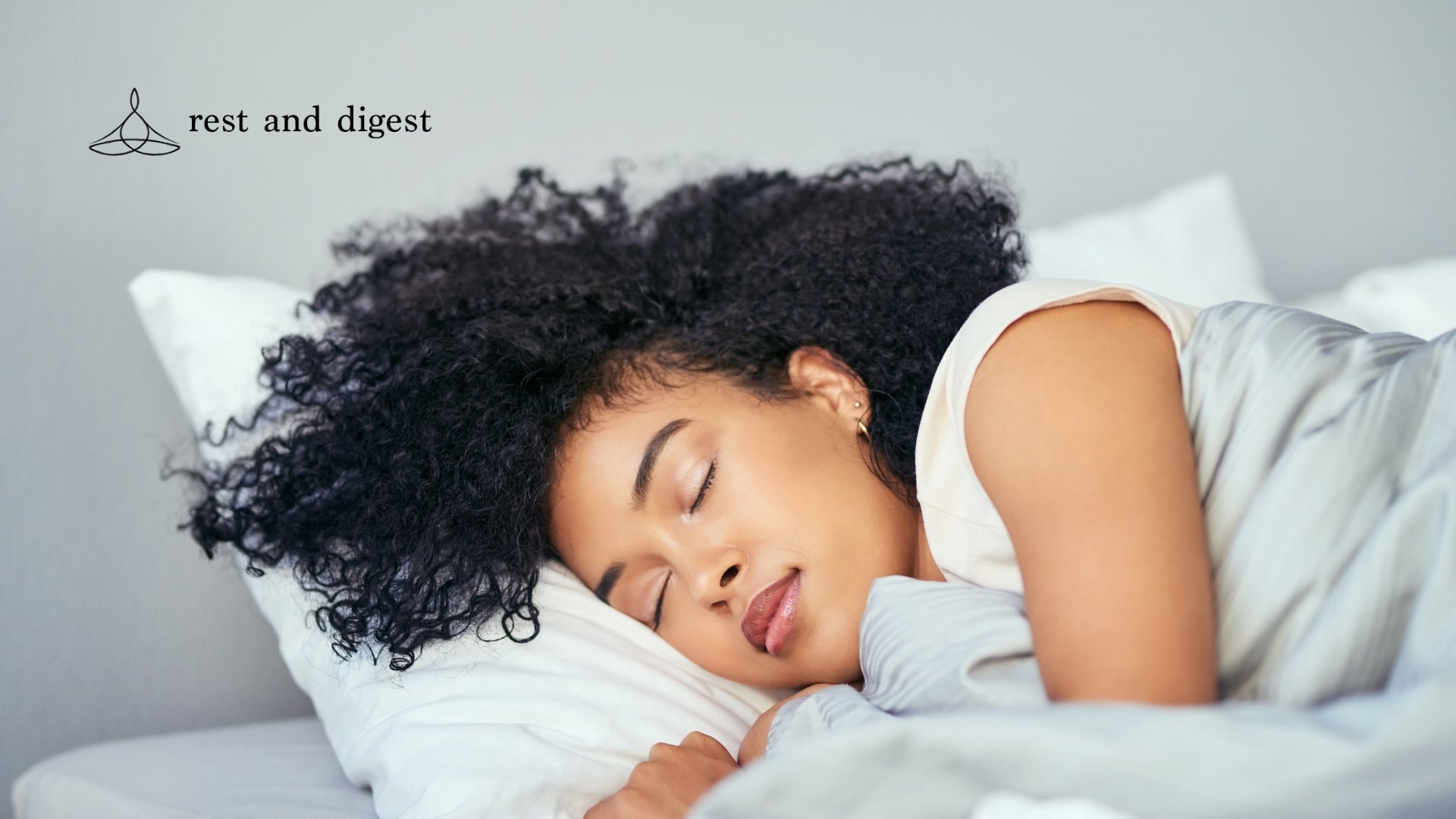
Tired All The Time? Why Am I So Tired & How To Fix It
Do you wake up tired even after a full night’s sleep? You’re not alone. Feeling constantly drained has become a common complaint in today’s fast paced world. While it’s normal to feel tired occasionally, ongoing fatigue is your body’s way of telling you something isn’t right — whether it’s your daily habits or an underlying health issue.
The good news? Fatigue can often be reversed. By understanding what’s causing your low energy and making a few intentional changes, you can feel like yourself again.
What Actually Causes Fatigue?
Fatigue is more than just sleepiness. It’s a persistent, often overwhelming sense of exhaustion — physical, mental or emotional — that rest alone doesn’t always fix.
Common Lifestyle-Related Causes
Most people feel tired due to everyday habits that chip away at their energy over time:
-
Poor Sleep Quality: Even if you sleep 7-9 hours, disturbances like light, noise or sleep apnea can prevent deep, restorative rest.
-
Chronic Stress: Constant stress keeps your cortisol levels high which eventually wears your body down.
-
Lack of Movement: Sitting for long hours without regular physical activity can make you feel sluggish
-
Unbalanced Diet: Eating too much sugar or processed food causes blood sugar highs and crashes which zaps your energy.
-
Dehydration: Even mild dehydration can leave you feeling foggy and tired.
-
Overworking or Burnout: Long hours without downtime takes a toll mentally and physically.
-
Too Much Caffeine or Alcohol: Caffeine can disrupt your sleep cycle while alcohol affects your sleep quality even if it helps you fall asleep faster.
Medical Causes Worth Considering
If changing your habits hasn’t helped, a health issue could be the root of your fatigue. Conditions linked to chronic tiredness include:
-
Anaemia: Low red blood cells mean less oxygen reaches your body’s tissues.
-
Thyroid Disorders: An underactive thyroid can slow your metabolism and leave you feeling sluggish.
-
Diabetes: Blood sugar fluctuations can cause persistent low energy.
-
Sleep Disorders: Conditions like sleep apnea, insomnia or restless legs syndrome can rob you of deep sleep.
-
Mental Health Issues: Depression and anxiety often show up as physical exhaustion too.
-
Heart or Lung Conditions: If your organs aren’t delivering enough oxygen, your whole body will feel the impact.
-
Vitamin Deficiencies: B12, D, iron or magnesium.
-
Chronic Infections: Mono or Lyme disease.
If you’re tired all the time and can’t figure out why, go see a doctor.

Why Am I So Tired? How To Identify It
Recognising fatigue early can help you make the necessary changes before it impacts your overall well-being.
Spotting The Signs Of Fatigue
Being tired is one thing — but when it starts to affect your life, it’s time to pay attention. Signs of chronic fatigue include:
- No motivation and no interest in anything
- Trouble focusing or staying awake during the day
- Irritability or mood swings
- Needing caffeine just to function
-
Feeling overwhelmed by everything
Physical Symptoms May Include
- Feeling heavy all over
- Struggling to get out of bed even after sleep
- Headaches or dizziness
- Brain fog or forgetfulness
- Shortness of breath after minimal activity
These symptoms often overlap with other conditions, so keep a log and talk to your doctor if they persist.
How To Fight Back Against Fatigue?
The right lifestyle changes can make a big difference. Here’s how to start feeling more energised:
Daily Habits That Help
-
Improve Your Sleep Hygiene: Go to bed and wake up at the same time every day. Keep your bedroom cool and dark and avoid screens and caffeine in the evening to wind down.
-
Exercise Regularly: 30 minutes of brisk walking most days will increase your energy and improve sleep. If you want to try something gentle and restorative our Rest and Digest Yoga Bundle — jute mat, carry strap and cork blocks is a great place to start.
-
Eat Smarter: Focus on whole foods, lean proteins, healthy fats and complex carbs. Avoid sugary snacks that crash.
-
Stay Hydrated: Drink water throughout the day — don’t wait until you’re thirsty.
-
Manage Stress: Yoga, meditation, journaling or creative hobbies can help lower stress which is a major energy drainer. Using a Leuchtturm1917 Bullet Journal or a Bespoke Letterpress Gratitude Journal makes reflection and stress management more enjoyable and effective. Here are some ideas on how to start writing a bullet journal.
-
Limit Caffeine and Alcohol: Too much caffeine or alcohol can disrupt your sleep and energy. Try calming herbal teas like Love Tea Organic Sleep Tea which has chamomile and lemon balm.
-
Take Regular Breaks: Working without breaks can exhaust you. Step away from your desk, stretch or take short walks to recharge. The Rest and Digest Productivity Timer can help you focus by setting dedicated distraction free time for work or study and boost your energy and productivity.
When Medical Support Is Needed
If lifestyle changes don’t work, it’s time to dig deeper. Your doctor may recommend:
-
Bloodwork: To check for anaemia, thyroid problems, vitamin deficiencies or blood sugar issues.
-
Medications: For depression, hypothyroidism or sleep disorders.
-
Therapy: Talk therapy or CBT can help with stress-related or emotional fatigue.
-
Sleep Studies: To evaluate for sleep apnea or insomnia.
-
Supplements: If your bloodwork shows deficiencies.
How To Prevent Fatigue From Coming Back
Now that you have your energy back, how do you keep it? Here’s how to look after yourself better:
-
Stick to a Schedule: Go to bed and wake up at the same time every day, even on weekends.
-
Keep Moving: Daily physical activity — even just stretching or walking — keeps your body active and alert.
-
Eat Regular Meals: Skipping meals can lead to energy crashes.
-
Stay Ahead of Stress: Don’t wait until you’re overwhelmed. Use tools and habits to manage stress proactively.
-
Cut back on screens especially before bed - blue light messes with melatonin.
-
Stay Social: Isolation can drain your energy. Connect with friends, even if just for a minute.
-
Set Boundaries: Don’t overcommit. Learn to say no and give yourself time to recharge.
Quick Energy Boosters That Actually Work
Need a pick me up? Try these:
Natural Ways To Boost Energy
-
Get Some Sun: Morning sunlight will help reset your mood quickly and restore your circadian rhythm.
-
Breathe Deep: Deep belly breathing gets more oxygen and reduces tension. Try various deep breathing methods to help you fall asleep.
-
Take a Power Nap: 10-20 minutes will improve alertness without affecting nighttime sleep.
-
Cold Splash or Shower: Kickstart circulation in the morning with a cold splash or shower. In the evening, unwind with a warm bath. Add half a packet of The Base Collective Magnesium Bath Salts to your bath and soak for 20 minutes to ease muscle tension and calm your mind.
-
Do Something You Love: Hobbies or creative activities fuel you mentally and emotionally.
Supplements And Foods That Help Recharge
Always check with a doctor before starting supplements but some that are often helpful are:
-
Iron (if anaemic)
-
Vitamin B12 or B-complex
-
Magnesium
-
CoQ10 (for energy production)
-
Adaptogens: Herbs like ashwagandha and Rhodiola for stress resilience and stamina
Energy-Boosting Foods To Add To Your Diet
-
Whole Grains: Brown rice, quinoa, oats for slow release energy
-
Lean Protein: Eggs, beans, poultry, fish for muscle repair
-
Fresh Fruits and Veggies: Bananas, berries, spinach, sweet potatoes
-
Healthy Fats: Avocados, nuts, seeds, olive oil for brain support
-
Hydrating Options: Cucumbers, oranges, watermelon for fluid balance
Sleep Well, Feel Better
Sleep is the foundation of high energy. Here’s how to improve it:
-
Create a Pre-Sleep Routine: Help your body wind down with calming activities like reading, a warm magnesium bath or gentle stretching. Try The Base Collective Beauty Sleep Wash to cleanse and soothe your senses, then hydrate your skin with Magnesium and White Tea Body Balm. Follow with a self massage using Hayo’u Body Oil and the Gua Sha Body Restorer. Finish with Beauty Sleep Spray on your pillow to help you sleep.
-
Optimise Your Sleep Environment: Make your bedroom dark, cool and quiet. Use blackout curtains or white noise machines if needed. The Rest and Digest Restore Eye Pillow filled with flaxseed and optional lavender will help you feel cosy and calm—especially when warmed or cooled.
-
Limit Blue Light Exposure: Turn off screens at least 30 minutes before bed to avoid disrupting melatonin production.
-
Don’t Eat, Drink or Smoke Before Bed:
Late meals, caffeine and alcohol can disrupt deep sleep. -
Invest in Comfort: A good mattress and pillows make a big difference. For a bit of luxury try the Rest and Digest 100% Mulberry Silk Pillowcase—it’s cool, breathable and gentle on your skin and hair.
You Don’t Have To Feel This Way Forever
Fatigue may be common, but it doesn’t have to be permanent. Whether it’s caused by your schedule, your habits, or something deeper, the key is to listen to your body and take proactive steps. Start small. Choose one habit to change this week, then build from there.
Your energy is one of your most valuable resources — protect it, nourish it, and give it the attention it deserves.





